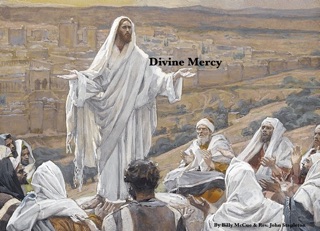THE will of God, announced to the world at large, is known as the Law of God; manifested to each individual soul, it is called conscience. These are not two different rules of morality, but one and the same rule. The latter is a form or copy of the former. One is the will of God, the other is its echo in our souls.
We might fancy God, at the beginning of all things, speaking His will concerning right and wrong, in the presence of the myriads of souls that lay in the state of possibility. And when, in the course of time, these souls come into being, with unfailing regularity, at every act, conscience, like a spiritual phonograph, gives back His accents and reechoes: "it is lawful," or "it is not lawful." Or, to use another simile, conscience is the compass by which we steer aright our moral lives towards the haven of our souls' destination in eternity. But just as behind the mariner's compass is the great unseen power, called attraction, under whose influence the needle points to the star; so does the will or Law of God control the action of the conscience, and direct it faithfully towards what is good.



























